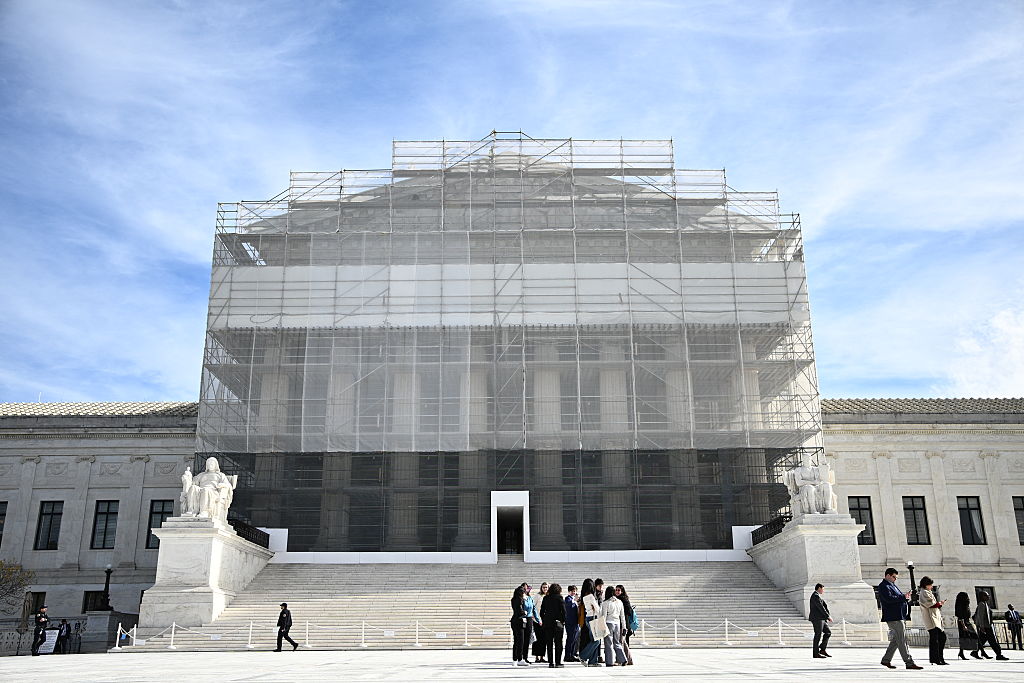Justices agree to decide major election law case


Setting the stage for a major ruling on election law, the Supreme Court on Monday agreed to decide whether federal law requires ballots to be not only cast by voters but also received by election officials by Election Day. As part of the list of orders from the justices’ private conference on Friday, the court took up Watson v. Republican National Committee, a challenge by the Republican National Committee and others to a Mississippi law (as well as similar laws in 30 other states and the District of Columbia) that allow mail-in ballots to be counted as long as they are received within five business days after Election Day.
The dispute began in 2024, when the RNC – along with the Mississippi Republican Party and two individuals – went to federal court to challenge the Mississippi law. Their case was later joined with a similar case brought by the Libertarian Party of Mississippi.
A federal judge in Gulfport, Mississippi, upheld the law, rejecting the challengers’ contention that it conflicted with federal law. Senior U.S. District Judge Louis Guirola explained that, according to Supreme Court precedent, “Congress set a national election day to avoid the ‘evils’ of burdening citizens with multiple election days and of risking undue influence upon voters in one state from the announced tallies in states voting earlier. Neither of those concerns,” he concluded, “is raised by allowing a reasonable interval for ballots cast and postmarked by election day to arrive by mail.”
The challengers appealed to the U.S. Court of Appeals for the 5th Circuit, which reversed Guirola’s decision. It ruled that federal election law, which sets the Tuesday after the first Monday in November as the “election” day for federal offices, requires all ballots to be received by that day. The full 5th Circuit declined to rehear the case, over a dissent by five judges.
Mississippi appealed to the Supreme Court in June. It argued “an ‘election’ is the conclusive choice of an officer” – which occurs by the deadline as long as voters cast their ballots by then, even if election officials do not receive them by that day. With the 2026 elections looming, “[s]tates need to know whether federal law permits post-election-day ballot-receipt laws—and thus whether they must change their laws to comply with federal law or whether they may change their laws on policy grounds.” Moreover, the state added, “[t]he stakes are high: ballots cast by—but received after—election day can swing close races and change the course of the country.”
The Republican National Committee urged the justices to leave the 5th Circuit’s ruling in place, pointing to the prospect that “chaos and suspicions of impropriety … can ensue if thousands of absentee ballots flow in after election day and potentially flip the results of an election.” Allowing ballots that arrive after Election Day to be counted also takes away from “the time to resolve post-election disputes,” the RNC wrote, and “deprive[s] the electorate of a clear nationwide deadline that ‘puts all voters on the same footing.’”
A group of 19 states and the District of Columbia filed a “friend of the court” brief supporting Mississippi. They called the 5th Circuit’s ruling “both wrong and destabilizing,” adding that “last-minute election-related limbo is the last thing states and courts need.” In particular, they noted, “the Fifth Circuit’s rule jeopardizes the ability of states to count lawfully cast ballots from military service members and their families who are stationed abroad.”
In a brief unsigned order on Monday morning, the justices agreed to take up the case. The court will likely hear oral arguments sometime next year, with a decision to follow by late June or early July.
Posted in Court News, Merits Cases
Cases: Watson v. Republican National Committee (Election Law)